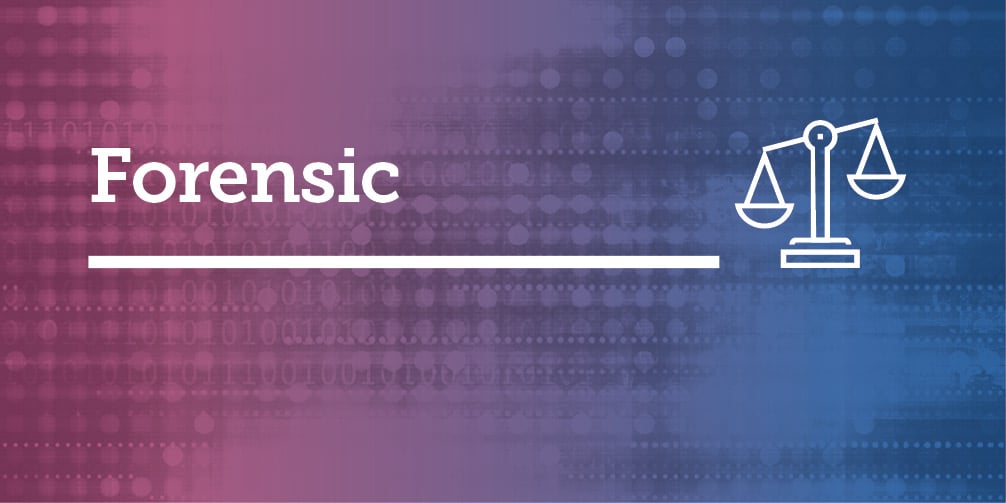Featured Article
Article Title
The Forensic Mental Health Implications of Social Media Challenges
Authors
Emily M. Asher, MD, MS, MPH, MPA - Assistant Clinical Professor, University of California, San Francisco, CA
Nathaniel P. Morris, MD - Assistant Professor of Clinical Psychiatry, University of California, San Francisco, CA
Dale E. McNiel, PhD - Professor Emeritus of Clinical Psychology Department of Psychiatry and Behavioral Sciences, University of California, San Francisco, CA
Renee L. Binder, MD - Professor of Psychiatry and Director of the Psychiatry and the Law Program, University of California, San Francisco, CA
Abstract
Children and adults are increasingly spending time on social networking sites where they may be exposed to social media challenges. These challenges, which are essentially dares or competitions, often involve participants recording themselves performing various activities to create a short video which they then share online. Many social media challenges may be considered relatively benign, but others may involve behaviors or tasks that lead to adverse outcomes, including injury and death. In this article, the authors describe different types of social media challenges, susceptibility to risk-taking among social media users, and the potential criminal and civil legal aspects of these challenges. This article focuses on the forensic mental health implications of social media challenges, including considerations for forensic psychiatrists and other mental health professionals who may become involved in court cases related to these challenges.
Keywords
child; adolescent; expert witness; juvenile justice; social media challenge; technology
Summary of Research
This article serves as both an analysis and commentary on social media challenges' legal and mental health aspects, aiming to aid professionals in effectively supporting vulnerable youth.
Social media challenges encompass various activities, ranging from harmless endeavors to potentially hazardous or controversial undertakings—challenges like the Tide Pod Challenge or the Cinnamon Challenge present significant health risks involving ingesting harmful substances. Moreover, challenges with sexual themes or those promoting dangerous behaviors pose additional concerns, particularly for younger participants.
Social media challenges can carry significant legal implications, with some activities leading to criminal liability and others resulting in civil litigation. Challenges like the Devious Lick Challenge, involving theft or vandalism at schools, have prompted disciplinary action, restitution orders, and criminal charges. Similarly, challenges such as the Blue Whale Challenge, which encouraged self-harm and suicide, have resulted in legal intervention and even convictions, as seen in the case of Philipp Budeikin, the alleged founder of the challenge, who received a prison sentence for inciting suicide. Additionally, challenges like the Slender Man Challenge have escalated to crimes, such as the 2014 case where two girls in Wisconsin were charged with attempted homicide after stabbing their friend, influenced by the fictional character Slender Man.
On the civil front, parties affected by social media challenges have pursued litigation against various entities, including social media platforms. Despite attempts to hold platforms accountable, courts have generally dismissed claims against them, illustrating the legal complexities surrounding online platforms and user behavior. Moreover, evolving juvenile sentencing standards, as shaped by landmark Supreme Court decisions like Roper v. Simmons and Miller v. Alabama, underscore the need for specialized considerations in cases involving young individuals, acknowledging their developmental differences and vulnerabilities in the legal context.
As social media challenges become more prevalent in youth culture, mental health professionals are tasked with navigating their complex legal and psychological dimensions. With the surge in litigation stemming from injuries related to these challenges, forensic psychiatrists play a crucial role in evaluating participants and victims. By delving into the nuances of social media challenges and understanding their digital context, these professionals can offer valuable insights into the motivations, behaviors, and risks associated with these online phenomena.
Translating Research into Practice
Understanding Social Media Challenges: Forensic evaluators need to familiarize themselves with the landscape of social media challenges and their potential consequences. This awareness is crucial for evaluating individuals involved in litigation related to these challenges.
Assessing Involvement and Digital History: Evaluators should determine the extent of an individual's participation in social media challenges and analyze their digital footprint. Social media platforms offer a unique source of information for assessing an individual's social relationships and behavioral patterns over time.
Language and Linguistics: Familiarity with the language and linguistics of social media is essential. Social media platforms have unique styles, including abbreviations, deviations from standard grammar, emoticons, and specific lexica. Understanding these nuances can aid in accurate evaluation.
Awareness of Evolving Trends: Social media language and trends evolve rapidly, often in response to specific events. Forensic evaluators should stay updated on these changes, including the emergence of "algospeak" and code words used to circumvent platform algorithms.
Legal Considerations for Minors: Forensic evaluators must be aware of laws governing minors' online activity, such as COPPA and state-specific regulations like the "eraser button law" in California. Understanding these regulations ensures compliance and accuracy in assessment.
Avoiding Misclassification of Injuries: Some injuries resulting from social media challenges may be misclassified, such as mistaking accidental injuries for self-harm. Forensic evaluators should be vigilant in distinguishing between unintentional harm and intentional self-harm, considering the specific circumstances of each case to prevent misclassification and ensure accurate evaluation and reporting.
Other Interesting Tidbits for Researchers and Clinicians
“Forensic evaluators should be aware of potential legal obligations arising from exploring an individual’s social media history. For example, upon discovering suicidal behavior or threats, evaluators may need to conduct careful risk assessments and consider interventions such as a referral for nonforensic mental health services or emergency psychiatric care. The scope of actionable findings is dependent on the specific circumstances of potentially dangerous behavior noted online, the judgment of the evaluator who finds this information, and jurisdictional requirements. There is currently a lack of professional guidelines surrounding mandated reporting relating to social media posts. In the internet setting, it may be unclear who is being harmed and how to ascertain who the possible intervening parties might be” (p. 86).



























